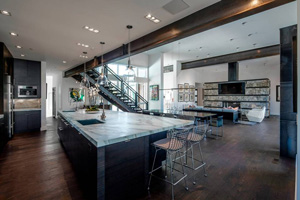News - 2016052002 - Keep Your Smart Home Safe From Hackers

Is your refrigerator spying on you? Probably not. Butonline-security experts caution that homes with “smart” technology—thermostats,security cameras, lights and appliances that connect to the Internet—arevulnerable to being hacked.
In a recent survey of 4,065 adults in the U.S., real-estatebrokerage Coldwell Banker Real Estate found that 45% of respondents ownsmart-home technology or plan toinvest in it this year. Yet only recently has security become apriority. While there have been few reported incidents, online-security expertsexpect smart-home hacking to increase. Luxury homeowners—often early adoptersof technology, executives with access to corporate data or simply wealthyindividuals—can be appealing targets.
The risks range from relatively harmless (pranksterscranking up the heat) to outright criminal (disabling security cameras toorchestrate a break-in). One of the biggest dangers is that poorly securedsmart-home devices could be used as a “backdoor” to gain access to moresensitive information.
Chubb Personal Risk Services, a division of the insurancefirm, asks homeowners about protections on their home-automation systems aspart of its initial client interview, and recommends ways to beef up security,said Don Culpepper, a premier risk specialist with Chubb based inAtlanta.
For the last couple of years, Seattle and SanFrancisco-based Concentric Advisors has provided corporate-level securityservices for homeowners. Services start at $500 a month and include setting upand monitoring home networks.
Basic stepsthat security experts recommend include: changing the passwordon your device from the default, protecting your WiFi network with a passwordand ensuring that your wireless router uses some form of encryption. If youhave given a password to someone who should no longer have it (like a formerdog-walker), it is important to change it immediately.
Architect Scott Jaffa, 53, installed a Crestronhome-automation system in combination with a Lutron lighting system in his ParkCity, Utah, home to test the technology for potential clients. The system cost$135,000 in 2012. He chose the provider partly because of its reputation fortight security, and liked that the installation company could monitor thesystem remotely and shut it down in the event of fraudulent activity. “I’vebeen very happy with the system,” he said.








